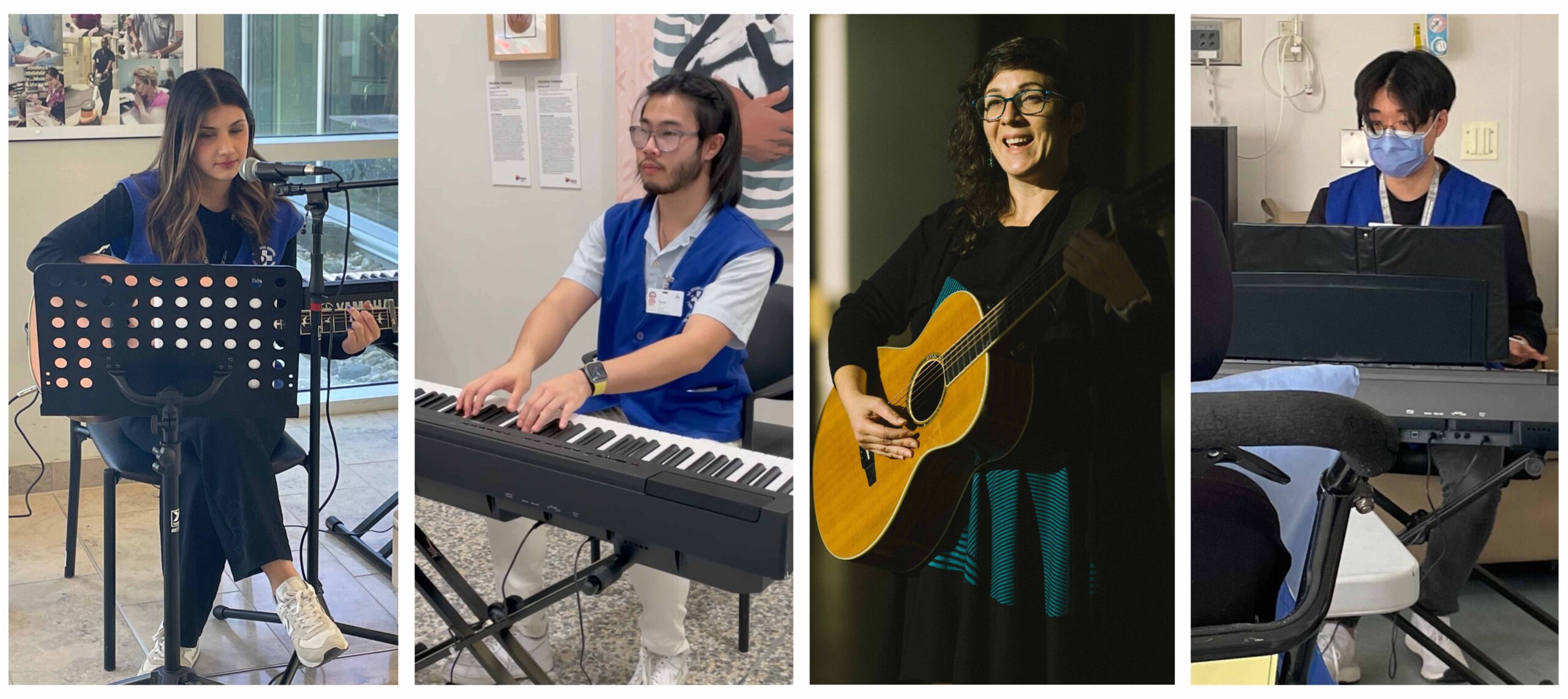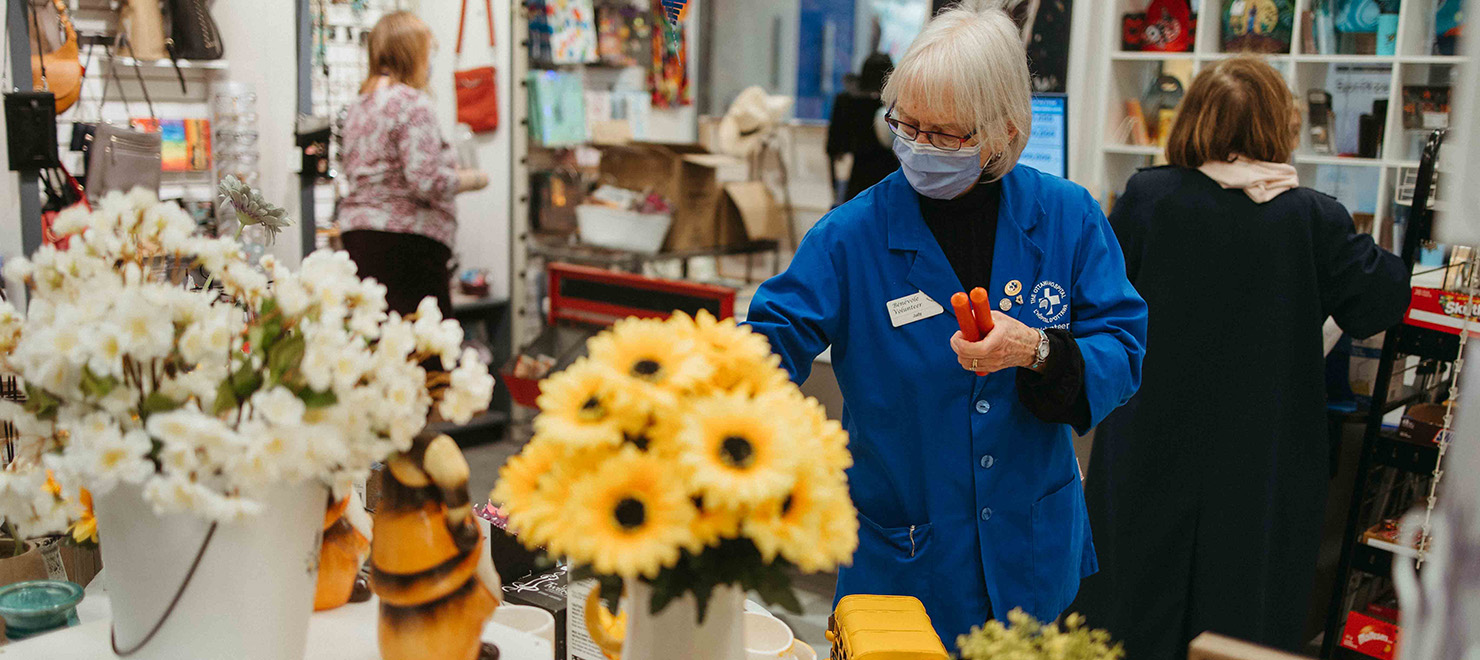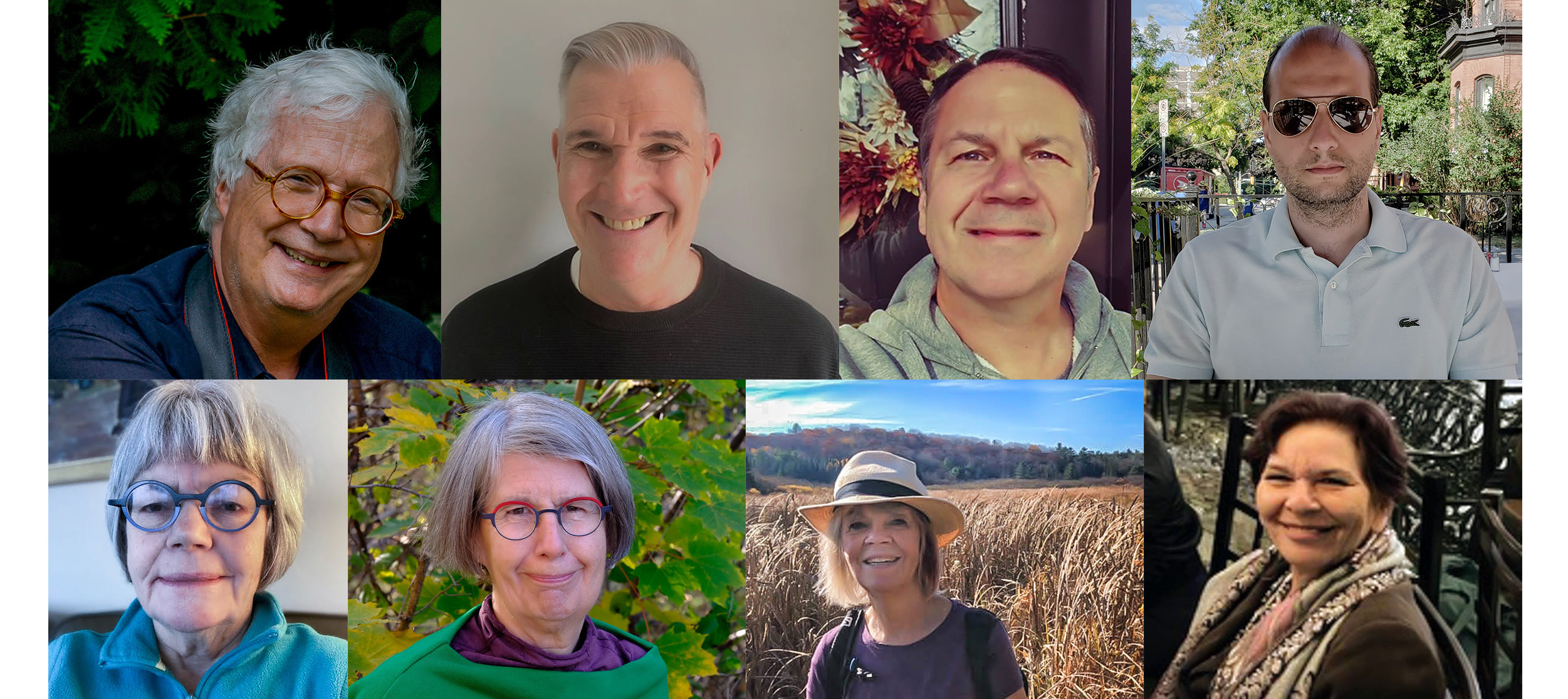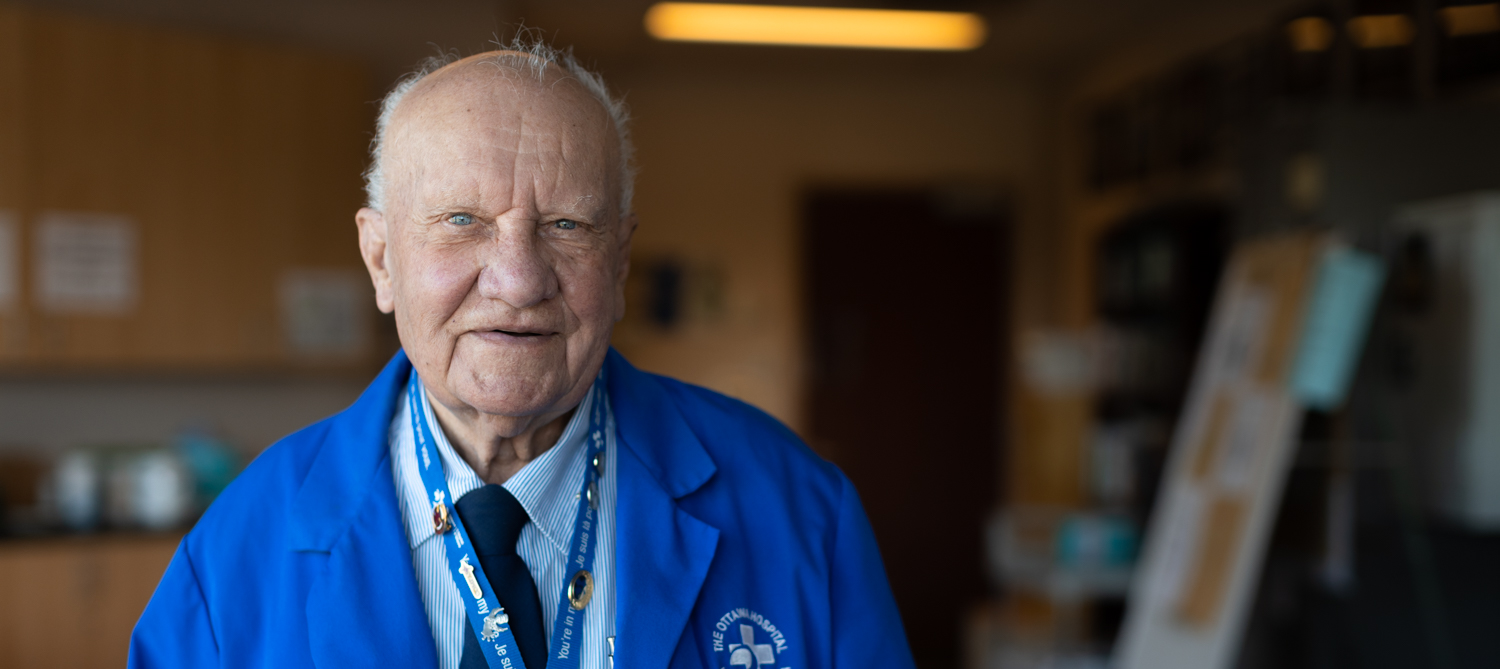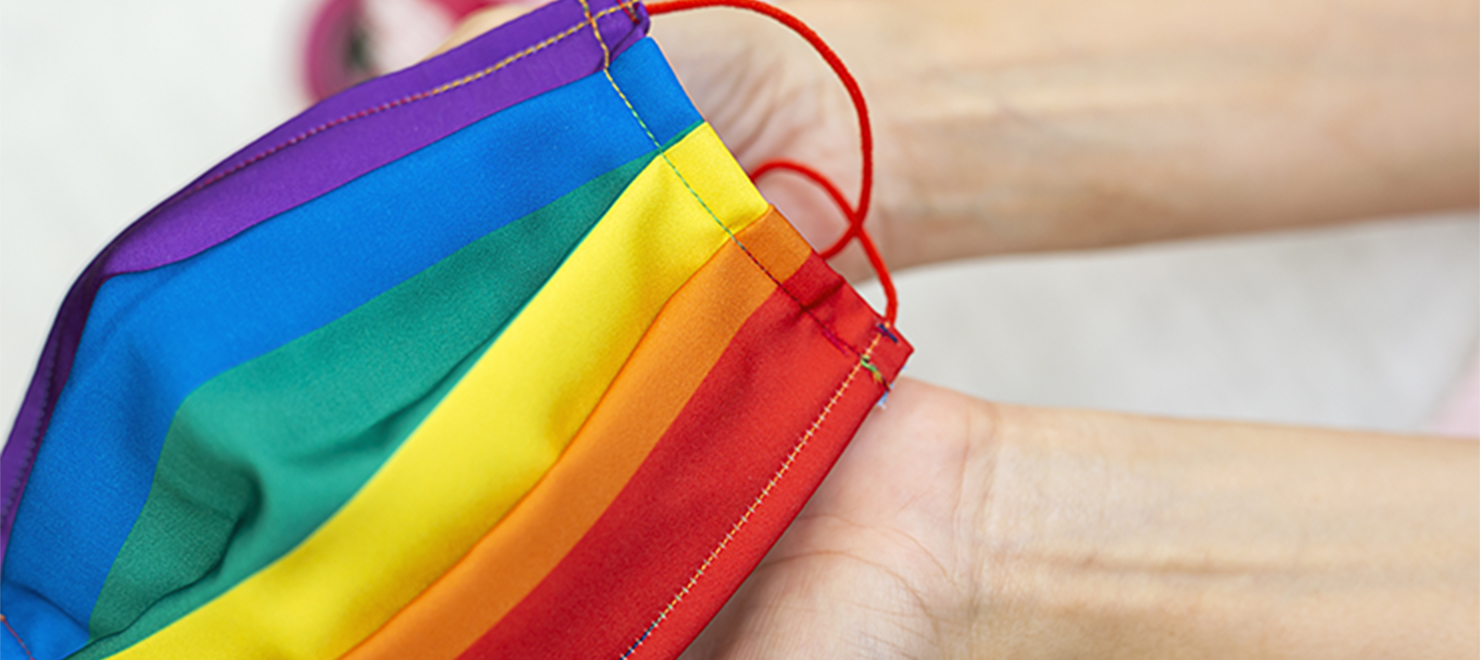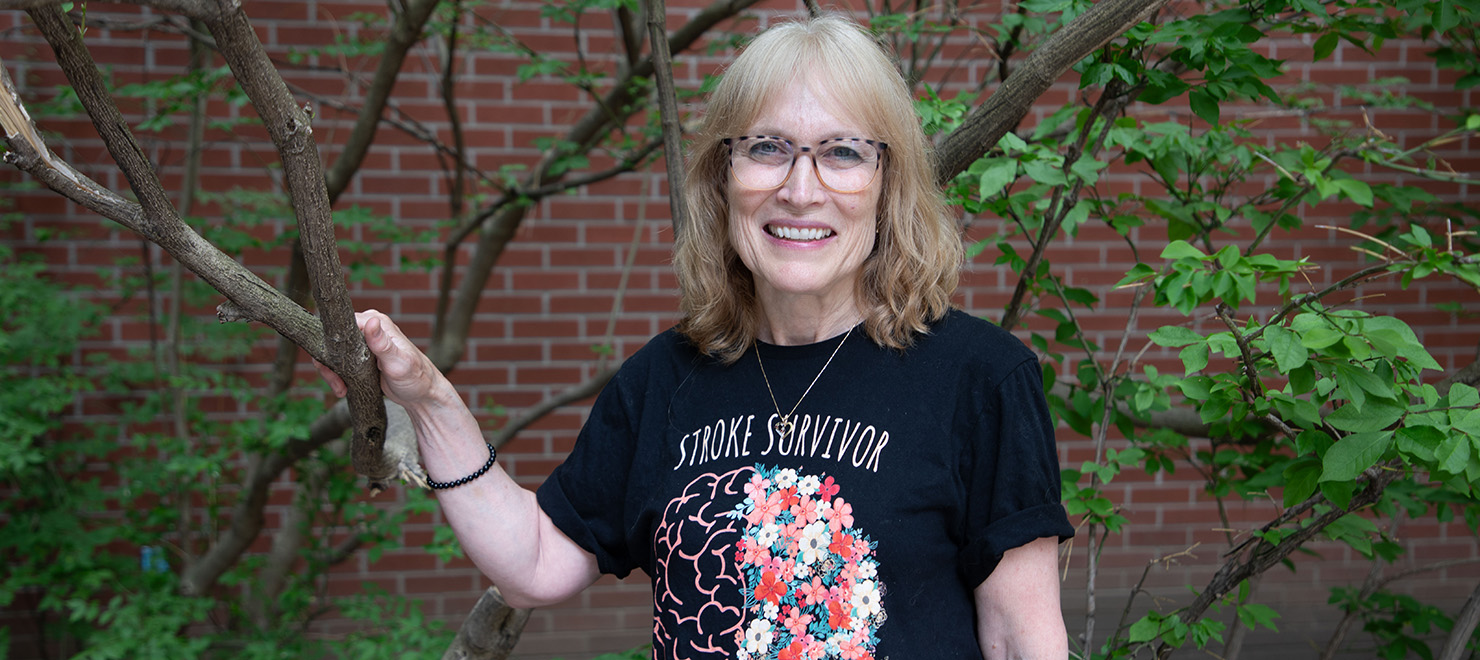
“Every time I volunteer, my heart feels so full,” beams Kim, right before paying her weekly visit to patients at our Civic Campus.
In the early days after a stroke, the road ahead can seem overwhelming for both patients and their loved ones. Having support from someone who’s walked that path can make a world of difference.
“I had a stroke about 12 years ago in Whitby,” recalls Kim Docherty-Smith. “During my hospital stay, a man named Ken came to visit me and my husband. He had also experienced a stroke and had recovered. It was just nice to know someone who had been through the same thing and went on to live a fulfilling life.”
Today, Kim is paying that kindness forward. As a volunteer with March of Dimes Canada’s After Stroke Hospital Peer Connections program at The Ottawa Hospital, she visits our inpatients who have experienced a recent stroke. With warmth and empathy, she offers them and their loved ones encouragement and emotional support, helping to make the recovery journey a little easier.
Spreading hope across the Champlain region
In late 2024, the Champlain Regional Stroke Network at The Ottawa Hospital, in partnership with March of Dimes Canada, introduced the After Stroke Hospital Peer Connections Program at our hospital, as well as at Bruyère Health, Cornwall Community Hospital and Pembroke Regional Hospital.
Like Kim, every volunteer understands the challenges and triumphs of life after a stroke. To empower patients and their families during this critical time in their lives, volunteers draw on their own lived experiences as either stroke survivors or caregivers of survivors.
“Sometimes, a little bit of hope is what they need,” says Kim. “A lot of the time, patients just need to know you’re there — it makes them feel better to just have someone in the room who’s been through what they’re going through. And for families, when they see someone who’s pulled through, that gives them hope too.”
Find support
If you know someone staying at our hospital who has recently experienced a stroke and could benefit from peer support, please contact the stroke unit’s social worker for more details and to arrange a visit.
Give support
Together, we can make the journey to recovery a little less overwhelming and a lot more hopeful. If you have lived experience as a stroke survivor or as a caregiver of someone who has had a stroke, the After Stroke Hospital Peer Connections program welcomes you to apply to become a peer volunteer.

Support patient care and research at
The Ottawa Hospital
You might also like…
Sign language interpretation services at The Ottawa Hospital: 5 FAQs
Do you require a sign language interpreter when you come to The Ottawa Hospital? For patients who are Deaf or hard of hearing, we provide both American Sign Language (ASL) and Langue des Signes Québécoise (LSQ) interpretation services at no cost. Before your next appointment with us, find out everything you need to know.
A volunteer program that taps into the power of music
Studies have shown that music can benefit the body, mind, relationships and community. Musical Moments is a program where volunteers play live music to support positive outcomes for patients, visitors and staff.
These volunteers turn chocolates and stuffed animals into MRI machines
We all know that a gift has the power to bring a smile to someone’s face. But did you know that the gifts you buy at our gift shops also have the power to help us buy important medical equipment? Our shops are run by a group of fundraising volunteers and staff from The Ottawa Hospital Auxiliary. Here are some other ways their efforts help make meaningful change.
After a life-altering bike crash, this group of volunteers proves that friendship and community are powerful medicine
In September 2021, a visiting professor woke up in our ICU completely alone. He admits that he wouldn’t have made it through the first few months without support. But he didn’t have to, thanks in large part to a group of caring volunteers who came to his side during this difficult time—and have been there ever since.
After 31 years of service, Stefan Mayer will soon hang up his blue volunteer jacket
For more than 30 years, volunteer photographer Stefan Mayer has captured important moments at The Ottawa Hospital, from awards ceremonies to newborn photos. Soon to turn 97, he will leave behind an incredible legacy when he retires from his volunteer career with us later this fall.
How patients and family members are helping to infuse pride into The Ottawa Hospital’s DNA
Learn about four initiatives spearheaded by our Rainbow Patient and Family Advisory Committee (PFAC) that are helping to create safer spaces for the 2SLGBTQ+ community.


 To reset, hold the Ctrl key, then press 0.
To reset, hold the Ctrl key, then press 0.

